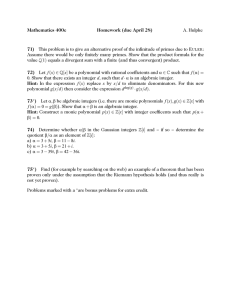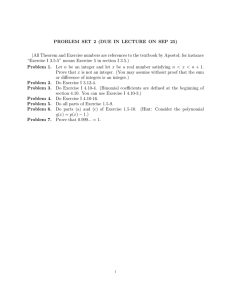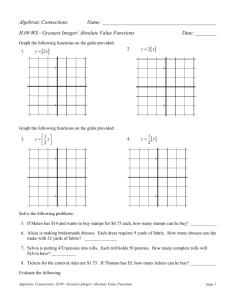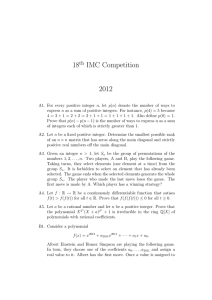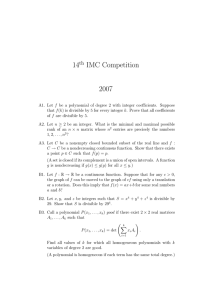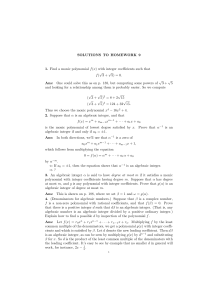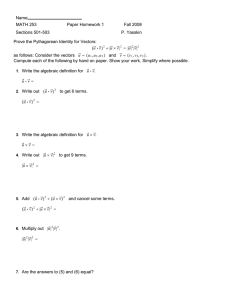18.781 Problem Set 10 Due Monday, December 5 in class.
advertisement
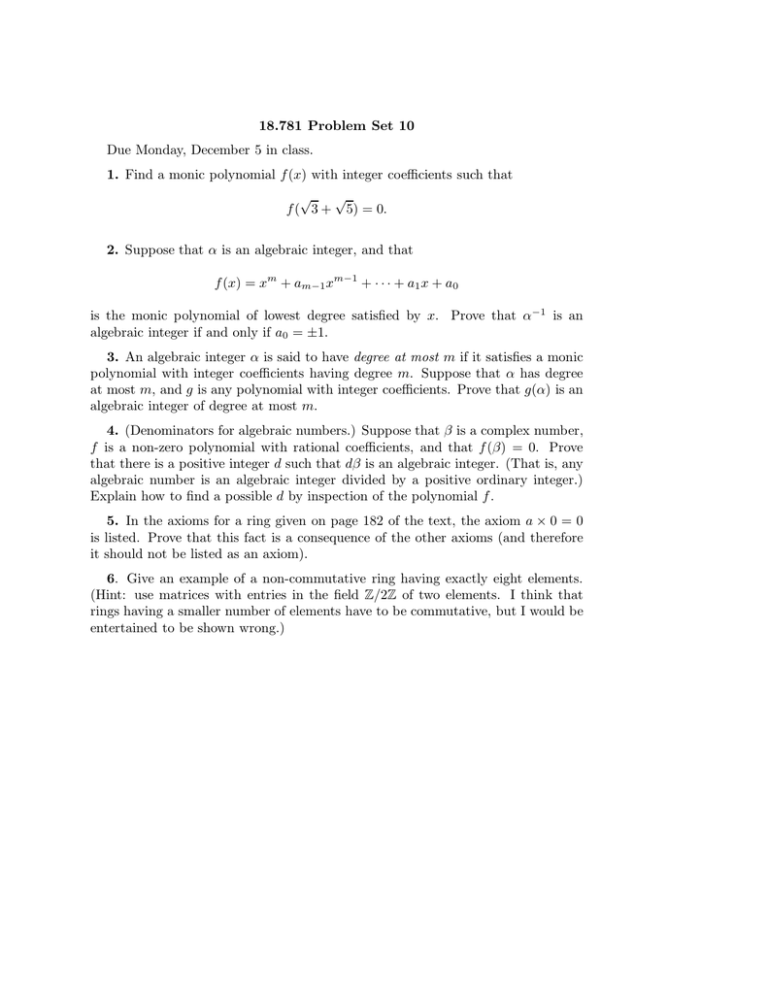
18.781 Problem Set 10 Due Monday, December 5 in class. 1. Find a monic polynomial f (x) with integer coefficients such that √ √ f ( 3 + 5) = 0. 2. Suppose that α is an algebraic integer, and that f (x) = xm + am−1 xm−1 + · · · + a1 x + a0 is the monic polynomial of lowest degree satisfied by x. Prove that α−1 is an algebraic integer if and only if a0 = ±1. 3. An algebraic integer α is said to have degree at most m if it satisfies a monic polynomial with integer coefficients having degree m. Suppose that α has degree at most m, and g is any polynomial with integer coefficients. Prove that g(α) is an algebraic integer of degree at most m. 4. (Denominators for algebraic numbers.) Suppose that β is a complex number, f is a non-zero polynomial with rational coefficients, and that f (β) = 0. Prove that there is a positive integer d such that dβ is an algebraic integer. (That is, any algebraic number is an algebraic integer divided by a positive ordinary integer.) Explain how to find a possible d by inspection of the polynomial f . 5. In the axioms for a ring given on page 182 of the text, the axiom a × 0 = 0 is listed. Prove that this fact is a consequence of the other axioms (and therefore it should not be listed as an axiom). 6. Give an example of a non-commutative ring having exactly eight elements. (Hint: use matrices with entries in the field Z/2Z of two elements. I think that rings having a smaller number of elements have to be commutative, but I would be entertained to be shown wrong.)
